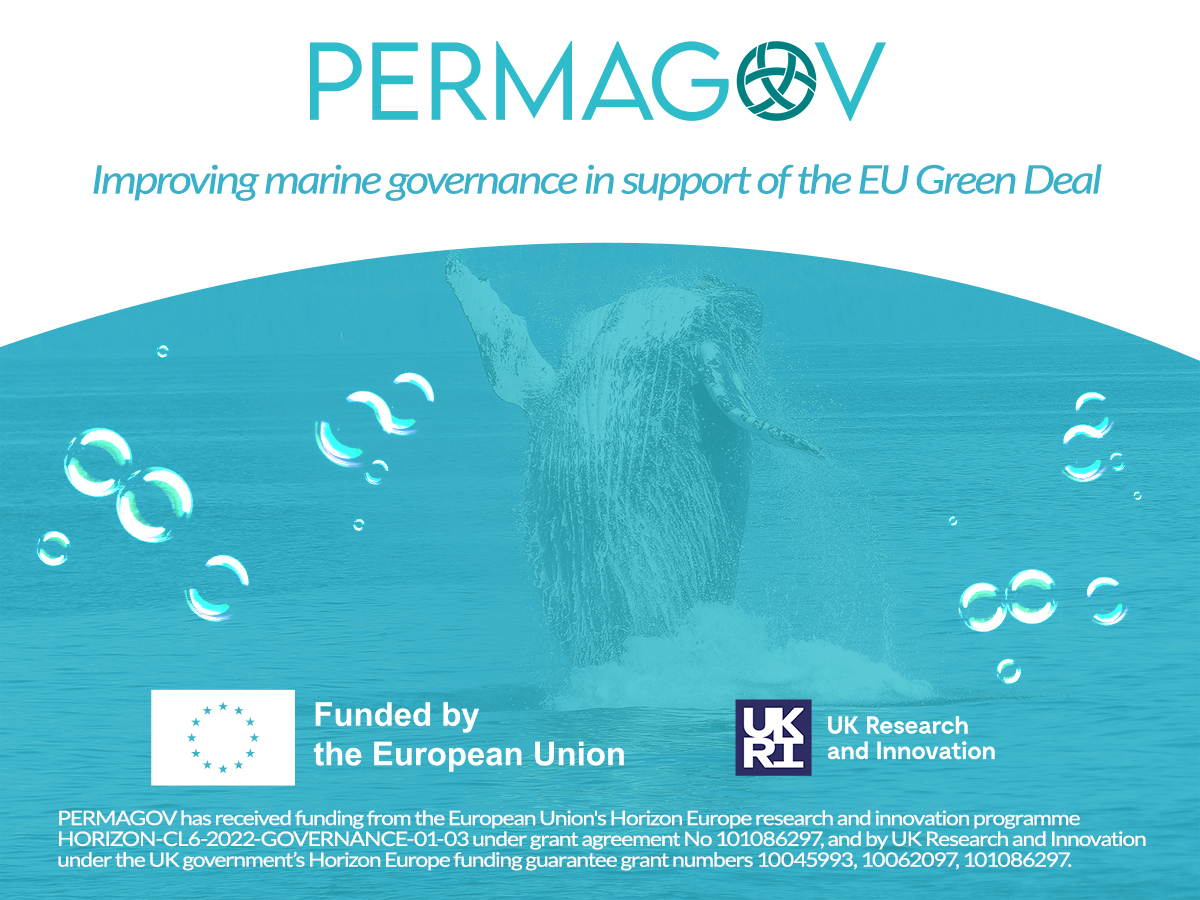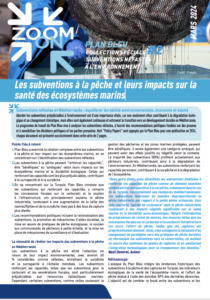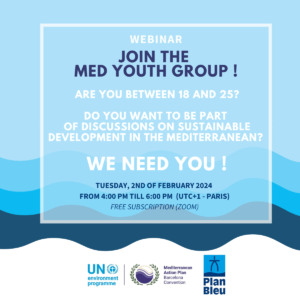
- Plan Bleu
Plan Bleu's missions
Make the Mediterranean a cooperation area for sustainable development
- themes
- projects
Projects in the news
- Ressources
- publications
Last publications
- Events
In the news
Last events
- Plan Bleu
Plan Bleu's missions
Make the Mediterranean a cooperation area for sustainable development

Providing socioeconomics insights for the appropriate management of Mediterranean resources

Facilitate a science – political and civil society interface

Supporting the transition towards a green and blue economy

Design possible futures for sustainable development

Observer of the environment and development to inform governments and the general public
- themes
- projects
Projects in the news
- Ressources
- publications
Last publications
- Events
In the news
Last events

PERMAGOV : Improving the PERformance of MArine GOVernance in support of the EU green deal
Key figures
Project duration: January 1, 2023 to December 31, 2026
Budget : 4 919 744 €
LINKS
Social media : Twitter et LinkedIn
Website : permagov.eu
Contact

The European Green Deal aims to tackle some of the biggest challenges facing Europe and the world, among them environmental degradation, loss of biodiversity, climate change, and pollution. Oceans are vital to life above and below ground, so their sustainable exploitation will be necessary to ensuring their effective functioning – as a climate regulator, as source of clean air, energy, jobs, and food, as one of the main trading routes – for generations to come.
However, the current setup of marine governance is not conducive to reaching Green Deal objectives, because it is hampered by institutional barriers, lack of coherent policy mechanisms, and ineffective governance systems. Marine governance must evolve to become more agile and flexible, cross-sectoral and multi-actor, in tune with changing dynamics in policy, science, technology, industry and society. This is exactly the objective of PERMAGOV, the new Horizon Europe project. Over the next four years, PERMAGOV will set out to support the improvement of EU marine governance performance in four selected seas (Adriatic, Baltic, Celtic, and Mediterranean) and three national waters bordering Italy, Ireland, Slovenia, Croatia, Denmark, and Norway.
PERMAGOV aims to streamline the implementation of sustainable marine management by focusing on cross-cutting policy priorities in key areas of transport, energy, life and litter.
In each of the nine cases (see figure), the existing governance structures will be analysed to gain a thorough understanding of institutional barriers and formal-informal dynamics causing fragmentation. The results will guide the co-development of multi-layered collaborative e-governance strategies with stakeholders across the 4 priority areas.
Plan Bleu plays 2 roles as:
1- e-governance partner focusing on engagement, information provision, digital transformations and e-governance services. Through its observatory, Plan Bleu illustrates the trends of relations between the state of the environment and development and follows the implementation of the Mediterranean Strategy for Sustainable development through a dashboard via an open source digital platform offering various functionalities to share interactive data.
2- consortium end-user for the Mediterranean case studies (4 and 9). Plan Bleu, being one of the Regional Activity Centres of the Mediterranean Action Plan (UNEP/MAP) affiliated with the Barcelona Convention for the Protection of the Marine Environment and Coastal Region of the Mediterranean has strong networks within the contracting parties, academics, NGOs.
Marine Life. Case 4: Sustainable fisheries in Mediterranean MPAs: here the focal point of PERMAGOV’s contribution to the end-user’s work is to develop collaborative strategies for monitoring and enforcement, in which (better) use of existing data systems and forging links with newly developed digital tools, such as for seafood traceability, can serve both improved biodiversity conservation and sustainable small-scale fishing. At the broader level of objectives, the lessons from the Italian context might directly inform developments in countries in the Mediterranean region.
Marine plastics. Case 9: Marine litter in the Mediterranean Sea: This case study will contribute to better coordination of data and policy making and implementation by identifying how and which (monitoring) data plays a role in the MSFD, the Barcelona Convention, and circular and plastic waste management policies, who develops and manages this data and for whom and what policy making processes. By identifying complementarities, mismatches and gaps, digital tools and data management approaches can be identified and developed to allow for a better harmonization and sharing of data. This data should be geared towards contributing to the implementation of the Regional Plan on Marine Litter Management in the Mediterranean, where governments committed to pass plastic reduction policies, support industry to minimize plastic packaging and redesign products, and change consumer habits.
With “marine life” and “marine plastics”, the other topics are “regime complex”; “marine transport” and “marine energy”.
At the regional level key for uptake of results will be regional organisations such as project partners HELCOM, and Plan Bleu that implement the Regional Seas Conventions for the Baltic and Mediterranean seas.
Partners
- Wageningen University, NL (coordinator)
- Aalborg University, DK
- UiT The Arctic University of Norway, NO
- Research Institute for Sustainability – Helmholtz Centre Potsdam, DE
- The Finnish Environment Institute, FI
- LifeWatch ERIC, ES
- Nordic Folkecenter for Renewable Energy, DK
- European Shippers Council, BE
- WWF Italia, IT
- Plan Bleu, FR
- The Baltic Marine Environment Protection Commission – Helsinki Commission, FI
- Arctic Energy Partners, NO
- The Queen’s University of Belfast, UK
- 21c Consultancy, UK
- Celtic Sea Power, UK
Publications
News
Subscribe to the newsletter
Subscribe to Plan Bleu’s newsletter to stay updated



-
Plan Bleu
Tour la Marseillaise
2 bis, Boulevard Euroméditerranée
Quai d'Arenc
13002 Marseille - France - [email protected]
- +33 (0)6 43 08 20 23
“
Building the Mediterannean’s future together
“








